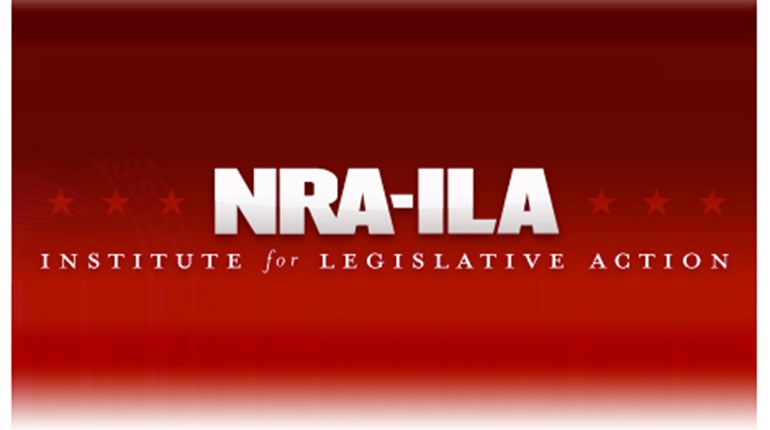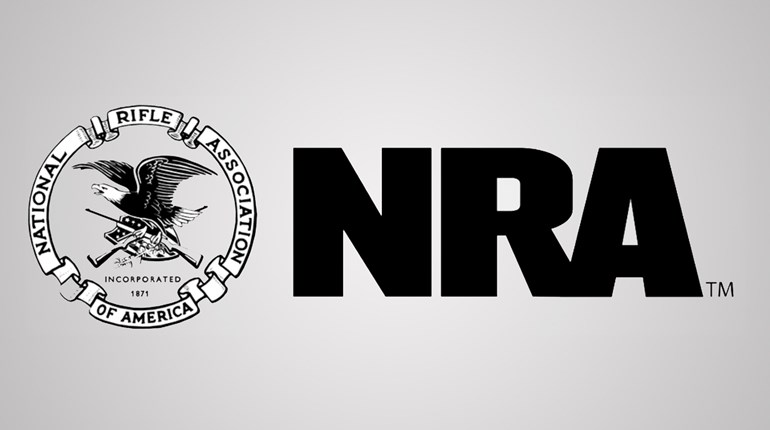
Since my earliest days, I have actively advocated for firearm rights in America in whatever capacity I could. I will always contend that my unwavering belief in the goodness of the gun was innate. I was born with what my buddy Dom Raso calls the “will to fight.” My mother still remembers driving down the road that day in Missoula, Mont., with me as a 4-year-old roaming around in the back seat of our Ford Pinto station wagon—car seats evidently weren’t much of a thing back then.
It was 1976—the bicentennial of the greatest, freest country the world has ever known—and the rusty Chevy truck in front of us on the road was adorned with a lone bumper sticker. The image of the revolver caught my attention because I was sure guns were cool and eminently useful. There was a strong man’s hand gripping the gun with some words below.
I leaned forward over the center console and asked my mom about the sticker. She told me it said “FROM MY COLD DEAD HANDS,” and I asked her what it all meant. She explained that there were people in the country who wanted to take guns from other people and that the guy driving the truck wasn’t about to go along with that show, at least not quietly.
I was immediately perplexed and continued my line of questioning. “Why would anyone want to take guns from other people?” As a thoughtful, eloquent woman, she did her best to explain things as well as she could, but none of it made sense. Really, it still doesn’t nearly four decades later.
She explained that there were people in the country who wanted to take guns from other people and that the guy driving the truck wasn’t about to go along with that show, at least not quietly.Spending virtually all of my professional career in state legislatures, facing down those whose deceptive endgame is to eliminate the private possession of firearms in America, has led me to the most plausible answers to that question I asked so long ago. What the prohibitionists are doing is purely immoral. Some of them are simply ignorant and utterly blinded by emotion. They cannot be helped and may not be worthy of real blame. Some among us are cursed with weaker constitutions.
The others shouldn’t have such nice things said about them. Their perfect world is irrefutably a place where the big, powerful and evil dominate and dictate. They have chosen to live a meek, helpless life and are unwilling to take control of their own destinies. They desire nothing more than to impose their chosen course of helplessness and dependence on all of their fellow citizens. By every measure, it is shameful and un-American conduct. It sickens me to my core.
Our Founding Fathers did not talk about gun control. They didn’t talk about taking guns from their fellow Americans. When the subject of the gun arose, all of them, without exception, spoke of its great virtue. After all, it was the privately held guns of the citizenry that had been used to defeat the greatest military power in existence. Guns had been used to win the freedom they had brazenly risked their lives, fortunes and sacred honor to secure while overcoming the longest odds.
It was James Madison, in Federalist Paper No. 46, who wrote, “(The Constitution preserves) the advantage of being armed, which Americans possess over the people of almost every other nation … (in which) the governments are afraid to trust the people with arms.” The Founders believed it through and through. This thinking is what inspired me to place my first bumper sticker on my own truck when I was a young man. It read, “Fear the Government that Fears Your Gun.” To me, it states the case as succinctly as anything possibly could.
I came from a decidedly apolitical family, so I will never know precisely where I acquired my deep love for America the way it was intended to be, as opposed to what the progressive reformers hope it will become. I may never know why I made a pledge to myself so long ago that I will not quietly allow the dream that was America to die on my watch. It is why I chose to go to work lobbying for the NRA all of those years ago. There is simply no other organization that, since the mid-1970s, has done more to help preserve the cause of liberty. Having been a small part of this will always be the proudest achievement of my life.
When I came to NRA, Charlton Heston was our president. He was there in the Arizona State Capitol on my first day of work. It was my job to introduce him to the political leaders of the state, including the governor, speaker of the house and senate president. I knew them all from my years of lobbying for the Arizona Supreme Court, but I had also worked the gun issue on the side as a citizen. President Heston was there to speak to the Joint Session on the opening day of the legislature. Before I could say a word, he reached his hand out to shake mine and spent the next minute, as a crowd of important people surrounded him, thanking me for joining the fight as part of his “force for freedom.”
As I approached him for the first time outside of the House Gallery, I thought of all of the things I wanted to tell him. Most importantly, I wanted to thank him for his gallant, selfless, passionate and articulate defense of the liberty I cherished. Before I could say a word, he reached his hand out to shake mine and spent the next minute, as a crowd of important people surrounded him, thanking me for joining the fight as part of his “force for freedom.”
I was a 27-year-old nobody. He was the most dignified and humble famous man I had ever met. I was stunned and will never forget that moment. Every story I have ever heard about that legend of a man was entirely consistent with my experience around him from that day on. He should be the example everyone uses when they think about the way they want to be remembered when they are gone.
Charlton Heston is the one who had impressed upon me that our right to arms is the right that ultimately protects all of the others. He is the one who raised that rifle over his head and stated in that haunting, magical tone:
“So, as we set out this year to defeat the divisive forces that would take freedom away, I want to say those fighting words for everyone within the sound of my voice to hear and to heed … from my cold, dead hands!”
While he had made the theater his life, this was not theater. These were not meaningless words spoken for effect. Like those Founding Fathers who knew that the fledgling country’s defeat in battle would mean their swift and certain deaths, Heston knew that the fight to preserve and strengthen the Second Amendment was a fight that could have only one outcome. Like those radicals of 1776, he was willing to engage in the extreme if pushed to the brink. This was not the first time he had pledged his life and fortune to a cause greater than himself.
From the Revolution, to the Alamo, to Bastogne, to restrictive political jurisdictions like New York City and Chicago, Americans have a history of refusing to passively surrender their arms. This trait is alive and well in millions of us. Those whose goal it is to comprehensively strip us of the freedom that makes our country special throughout the world would be wise to take note. When we say in our modern lexicon that “they won’t get mine,” we mean it. I know damn well that I do. It is my solemn duty to honor the courageous, freedom-bound actions of those who came before, including President Heston’s.


































